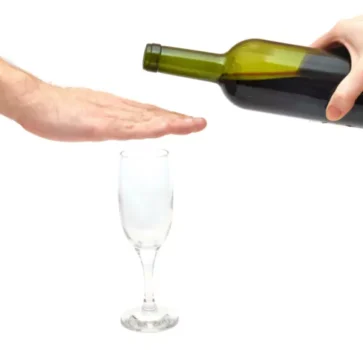Signs & Symptoms of A Dry Drunk

Sobriety is a long, ongoing process, but help, support, and treatment can make it easier. The emotional instability that comes with Dry Drunk Syndrome can put a strain on your relationships with loved ones. You might become withdrawn, argumentative, or struggle to communicate effectively. These defense mechanisms, developed during active addiction, can hinder honest self-assessment and growth. Euphoric recall involves selectively remembering only the positive aspects of past substance use, while conveniently forgetting the negative consequences. Creating a gratitude list and actively engaging in recovery-related activities are vital strategies to combat this disillusionment and maintain focus on long-term goals.
Speak With Someone Who Understands
Someone can be sober, meaning they aren’t using drugs or alcohol, but they might not have fully dealt with the underlying contributors to the original alcohol use disorder. Recovery, by contrast, is a process of physical and emotional healing from the disease of addiction. According to the National Institute on Drug Abuse6, recovery is a change process. As part of this process, people improve their complete health and wellness, live in a self-directed way, and work toward reaching their full potential.
- Learning the symptoms of the dry drunk syndrome and a few strategies to cope better can help you or someone you love to move past this stumbling block toward lasting recovery.
- For many people in recovery, dry drunk symptoms can make cravings and a desire to drink again very difficult to resist.
- They may be frustrated at realizing they can’t drink as other people do, or they could struggle to take responsibility for the years they spent drinking.
- The alcoholics are changing their entire identity, and they are attempting this without the crutch of alcohol.
Dry Drunk Signs
It is now recognized that people can experience extended withdrawal for numerous reasons, and receiving behavioral health and addiction treatment congruently can help recovery from protracted withdrawal. Dry drunk syndrome can be a tragedy for the addicted person as well as their support system and loved ones. The term dry drunk syndrome was originally coined by the creators of the 12-step program at Alcoholics Anonymous. In fact, their relationship might even be worse, because the person is now acting more depressed or agitated due to the lack of their addictive outlet.
- Sleep study research on people recovering from alcohol use disorder has found that sleep abnormalities can last one to three years after stopping alcohol use.
- Without a safe space to share your struggles and receive encouragement, feelings of isolation and loneliness can worsen, potentially leading to Dry Drunk Syndrome.
- Years of alcohol and drug abuse almost mold it into addiction’s nature.
- Have you ever felt like you’re white-knuckling your way through recovery?
- Unfortunately, dry drunk syndrome impacts many people in recovery each year.
What to Do About Untreated Alcoholism
This might involve seeking therapy, engaging in support groups, or continuous self-reflection and accountability within the recovery process. Seeking support from recovery groups or professionals can help manage these emotional swings and provide tools to navigate life’s ups and downs without relying on substances. Complacency is not only a characteristic of dry drunk syndrome but also a warning sign of potential relapse.
What It Looks and Feels Like

For you to be able to move from being sober to being in successful recovery, you must deal with any trauma or mental health issues that contributed to your alcohol use disorder. At Discovery Place, we understand that true recovery involves treating the whole person—mind, body, and spirit—ensuring that these underlying challenges are met with empathy and comprehensive support. ‘Dry drunk syndrome’ is a stigmatizing term no longer used in the field of substance use treatment. It was initially used to describe someone who is no longer drinking but has some of the same behavioral issues and difficulties they experienced when they were drinking.

Individualized, evidence based treatment, to fit your needs.

GBAC understands Dry Drunk Syndrome and offers addiction therapy programs that address both addiction and underlying emotional issues. We provide various options like outpatient programs, medication-assisted treatment (MAT), individual and group therapy. Though dry drunk syndrome is common, not everyone who experiences the syndrome will experience it the same way.
Emotional Extremes
What you’re saying is “I am not like you” with the implication that rules don’t apply in my particular case. Superiority or grandiosity means a return to a self-centered, ‘the world revolves around me’ attitude. Chemically dependent people are self-centered in the extreme, as any therapist or psychiatrist is quick to observe. Less than 4 percent of people with AUD were prescribed a medication approved by the U.S.
- Working closely with a sponsor or a licensed medical professional can help manage these feelings.
- However, there is limited research on protracted withdrawal, and it is not yet included in the Diagnostic and Statistical Manual of Mental Disorders.
- Remember, recovery is a journey, and seeking support along the way can make all the difference in overcoming dry drunk syndrome.
- For recovery to be successful, you have to deal with any mental health issues or trauma that contributed to your substance abuse problems.
Many hope that without alcohol, their addicted loved one’s behavior will be what they hoped it would be all along. However, the reality is that humans struggling with an addiction never felt “okay” in the first place, and removing a substance only brings to light the issues that were hidden all along. When the alcohol is pulled away, it is only logical that things will get worse before they get better. Dry drunk syndrome is a common challenge facing many individuals in early recovery.
Sharing your experiences with others in group therapy who have faced similar challenges can foster connection and reduce feelings of isolation. Find support groups near you and commit to attending them for long term recovery. The first step in overcoming dry drunk syndrome is to dry drunk syndrome acknowledge your feelings and experiences. Understand that it is normal to feel a range of emotions during recovery.

Substance Use Treatment
Recognizing a return to old thought patterns and behaviors, or a lack of progress in recovery, is crucial. In the sober community, this is sometimes referred to as “untreated alcoholism.” Both terms describe similar symptoms, often seen at the start of relapse. The term dry drunk is one way to refer to a person who is sober but not fully committed to recovery what is alcoholism from alcoholism. But calling people dry drunks may make them feel stigmatized or alienated.

